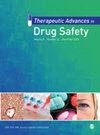Assessing potential risk factors for metamizole-induced leukopenia
IF 3.4
3区 医学
Q2 PHARMACOLOGY & PHARMACY
引用次数: 0
Abstract
Background:Metamizole is a non-opioid analgesic agent that can rarely cause agranulocytosis, a severe form of leukopenia.Objectives:The aim of this study was to assess previously identified potential risk factors for the development of metamizole-induced leukopenia.Design:A retrospective, observational, matched case-control study was performed in a single-center setting.Methods:Patients who developed leukopenia in the setting of metamizole therapy were included as cases and matched 1:3 on the basis of age and sex to control patients who did not develop leukopenia when treated with metamizole. The data were obtained from the medical records of patients hospitalized at Cantonal Hospital Baselland between 2015 and 2020. Univariate and multivariate analyses were performed.Results:Eighty-six cases and 258 matched controls aged between 18 and 102 years were included. Fifty-seven percent were female. Previous leukopenic episodes (odds ratio (OR): 4.02, 95% CI: 1.95–8.28, p < 0.001) and a history of penicillin allergy (OR: 2.49, 95% CI: 1.03–6.03, p = 0.044) were found to be independent risk factors for metamizole-induced leukopenia.Conclusion:A history of previous leukopenic episodes and a history of penicillin allergy were confirmed as risk factors for metamizole-induced leukopenia. In our opinion, metamizole should be avoided in patients with these risk factors.评估甲硝唑诱发白细胞减少症的潜在风险因素
背景:甲咪唑是一种非阿片类镇痛药,在极少数情况下可引起粒细胞减少症,这是一种严重的白细胞减少症。目的:本研究旨在评估先前确定的甲咪唑诱发白细胞减少症的潜在风险因素。方法:将接受甲氰咪唑治疗时出现白细胞减少症的患者作为病例,并与接受甲氰咪唑治疗时未出现白细胞减少症的对照组患者按年龄和性别进行1:3配对。数据来自 2015 年至 2020 年期间巴塞兰州医院住院患者的医疗记录。研究人员对这些数据进行了单变量和多变量分析。女性占 57%。既往白细胞减少症发作(几率比(OR:)4.02,95% CI:1.95-8.28,p <0.001)和青霉素过敏史(OR:2.49,95% CI:1.03-6.03,p = 0.044)被认为是甲氰咪唑诱发白细胞减少症的独立危险因素。我们认为,有这些危险因素的患者应避免服用甲氰咪唑。
本文章由计算机程序翻译,如有差异,请以英文原文为准。
求助全文
约1分钟内获得全文
求助全文
来源期刊

Therapeutic Advances in Drug Safety
Medicine-Pharmacology (medical)
CiteScore
6.70
自引率
4.50%
发文量
31
审稿时长
9 weeks
期刊介绍:
Therapeutic Advances in Drug Safety delivers the highest quality peer-reviewed articles, reviews, and scholarly comment on pioneering efforts and innovative studies pertaining to the safe use of drugs in patients.
The journal has a strong clinical and pharmacological focus and is aimed at clinicians and researchers in drug safety, providing a forum in print and online for publishing the highest quality articles in this area. The editors welcome articles of current interest on research across all areas of drug safety, including therapeutic drug monitoring, pharmacoepidemiology, adverse drug reactions, drug interactions, pharmacokinetics, pharmacovigilance, medication/prescribing errors, risk management, ethics and regulation.
 求助内容:
求助内容: 应助结果提醒方式:
应助结果提醒方式:


